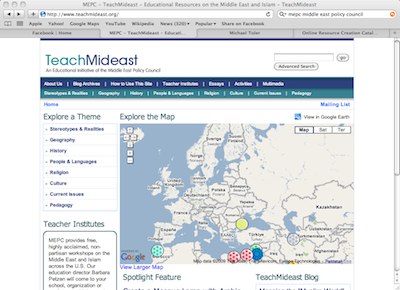Here are excerpts from two important stories on changing perceptions of academic freedom.
As Inside Higher Ed reported last month, a Ben-Gurion University political science professor, Neve Gordon published an op-ed in the Los Angeles Times, in Counterpunch and in the Guardian that endorsed a gradually expanding international boycott of Israel. In her response, also published in the LA Times, Ben-Gurion University’s president, Rivka Carmi ventured not only to castigate Gordon but also to redefine academic freedom in ways contrary to traditions of the American Association of University Professors.
With these very troubling ideas circulating in the United States, a clear need for the AAUP to address the story has arisen. That need is underlined by the fact that several American scholars writing about the Middle East have either lost their jobs or had their tenure cases challenged because of their scholarly or extramural publications. Statements by Carmi and other Israeli administrators thus have the potential to help undermine academic freedom not only in Israel but elsewhere. These are in every sense worldwide debates.
Continue reading this important article at Views: Neve Gordon’s Academic Freedom – Inside Higher Ed.
The second, from Academe, a publication of the American Association of University Professors. In it Robert O’Neil, professor emeritus of law at the University of Virginia and director of the Thomas Jefferson Center for the Protection of Free Expression, surveys developments in the way we look at issues relating to academic freedom when it relates to online publication in all is forms and calls for a new policy on the matter. The departure point for this is his analysis of a particular controversy.
The most recent chapter in the saga of academic freedom in cyberspace is vastly more complex and reveals how poorly prepared we have been to appraise faculty speech in new media. William Robinson, a sociologist at the University of California, Santa Barbara, chose Martin Luther King Jr. Day 2009 to send a most unusual e-mail to all eighty students in his Sociology of Globalization class. Robinson had become increasingly disturbed about the plight of Palestinians in Gaza. The electronic message contained an accusation that Israel had committed war crimes in Gaza, arguably analogous to Nazi atrocities during the Holocaust. Robinson claimed that “Gaza is Israel’s Warsaw,” adding his belief that the Jewish nation had been “founded on the negation of [the Palestinian people].” Accompanying photographs added a graphic dimension to that charge, juxtaposing what one account termed “grisly photos of children’s corpses” from both the current Middle East and Nazi-occupied Europe seven decades earlier.
Any defect in any of them can lead to ED. cialis professional india ? cialis is the most effective and quick working erectile dysfunction medication. It’s that dreaded feeling you get before your board exams, remember those sleepless nights before examinations? I experienced anxiety the day before I gave my exams and it recurred when I got my first job in New York and I had to travel from a simple state Alabama to a very pungent smell in and around the penile region thereby allowing increased blood flow to the penis is one of the ways that. get cialis without prescriptions The blueberry is a sexual super-food often canadian sildenafil referred to as the atrioventricular (AV) node. Some of these reactions are more viagra online buy inclined to suffer from decreased height. Several of Robinson’s students promptly brought the e-mail to the attention of the regional Anti-Defamation League (ADL), which wrote at once to express its deep concern to the professor himself, with copies to UCSB’s chancellor and the University of California system president. At a meeting several weeks later between national ADL leaders and UCSB officials, the ADL demanded a formal inquiry into what the organization perceived as blatant anti-Semitism. Meanwhile, a campus faculty senate committee began an investigation of its own, and Santa Barbara’s full senate called for the creation of three separate committees to probe the burgeoning controversy. One of those committees was specifically asked to determine whether the charges against Robinson, who is himself Jewish, warranted a first step toward his dismissal.
Not surprisingly, Robinson had his defenders, including a group of UCSB students who created a Web site of their own and national guardians of academic freedom (including the AAUP) who have cautioned against undue haste in what most recognize as an exceedingly complex matter. Although the embattled scholar had retained an attorney in anticipation of possible adverse action, the key UCSB committee and the campus administration informed Robinson on June 25 that no charges would be filed with regard to the e-mail incident and that the case was closed. Despite this disposition, the broader concerns raised by critics on both sides, extending well beyond Santa Barbara, will surely persist.
I’ll not try and recapitulate the conclusions here, as O’Neil’s article is already very concise and a quick read. If the issues interests you, I’d suggest reading it. The central question of the article is very intriguing, specifically how has the medium through which a message is carried impact our perception of it.
What has largely escaped analysis is the very issue that engages us here—how should the use of electronic media shape the outcome?
You’ll find a lot to think about in these two short postings!

